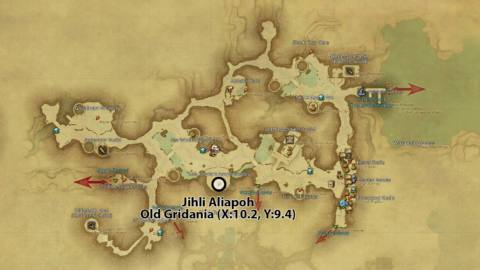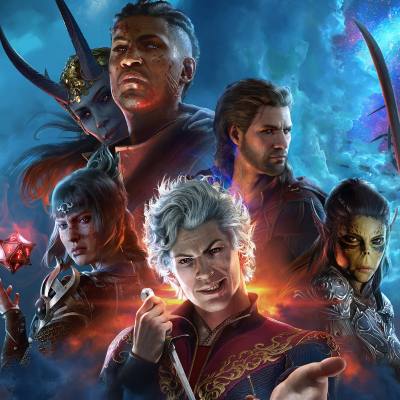“Oh thank God, they're having sex,” I sighed as my King and his wife, Harold and Carol, finally got down to business. This, I admit, is not a typical reaction to seeing two people express their affection for one another. But Harold and Carol's unconsummated love life has been threatening the stability of my entire Kingdom. It's nothing to do with heirs, although one of those wouldn't go amiss either. Harold, you see, is a deeply monogamous soul, but lately he's been too preoccupied with his royal duties to see to his marital ones. Carol, meanwhile, has a libido to rival an entire warren of rabbits, to the point where she's been considering bribing peasants into her bed.
Morality aside, for Carol to cheat on Harold could have all manner of nasty consequences. It could send Harold spiralling into a depression that leads to a nervous breakdown, rendering him unable to give orders to his peasants, thus grinding the entire Kingdom to a halt. Worse, it could send him into a murderous rage. So naturally, I have been frantically playing Cupid, trying to push them together for walks and chats and even a spot of wolf hunting. Now though, they're finally at it, which hopefully means I can focus on all the Kingdom's other problems, like the rapidly depleting food supply, and that big camp of bandits threatening a raid.

Norland, like Crusader Kings, is a game about building a glorious medieval empire on the backs of deeply human feudal lords, whose unstable emotions and courtly bickering is enough to manage before you consider the many peasants who live and die at their whim. Yet where Crusader Kings communicates this through the medium of global grand strategy, Norland does it through a RimWorld-style colony simulation, one where every in-game event—from breakfast to beheading—is visibly depicted in real-time.
The result is a vivid representation of how the needs of a community can rub painfully against the caprice of those in power. The tiniest of events, like your King telling a mean joke to his sister-in-law, can spark personal vendettas and even wars that will dog your domain for weeks. It is a powerful, engrossing story engine, albeit one that can, at times, frustrate from a play perspective.
At its most fundamental level, Norland is a classic management sim, one of planting buildings and generating resources and connecting production chains, all of which goes toward growing a population of simulated humans. You need to build houses for your peasants to sleep in, farms and lumbermills for them to raise crops and process wood, mills and breweries for them to turn rye and rutabagas into flour and moonshine, and civic buildings like taverns and temples to satisfy their higher needs.
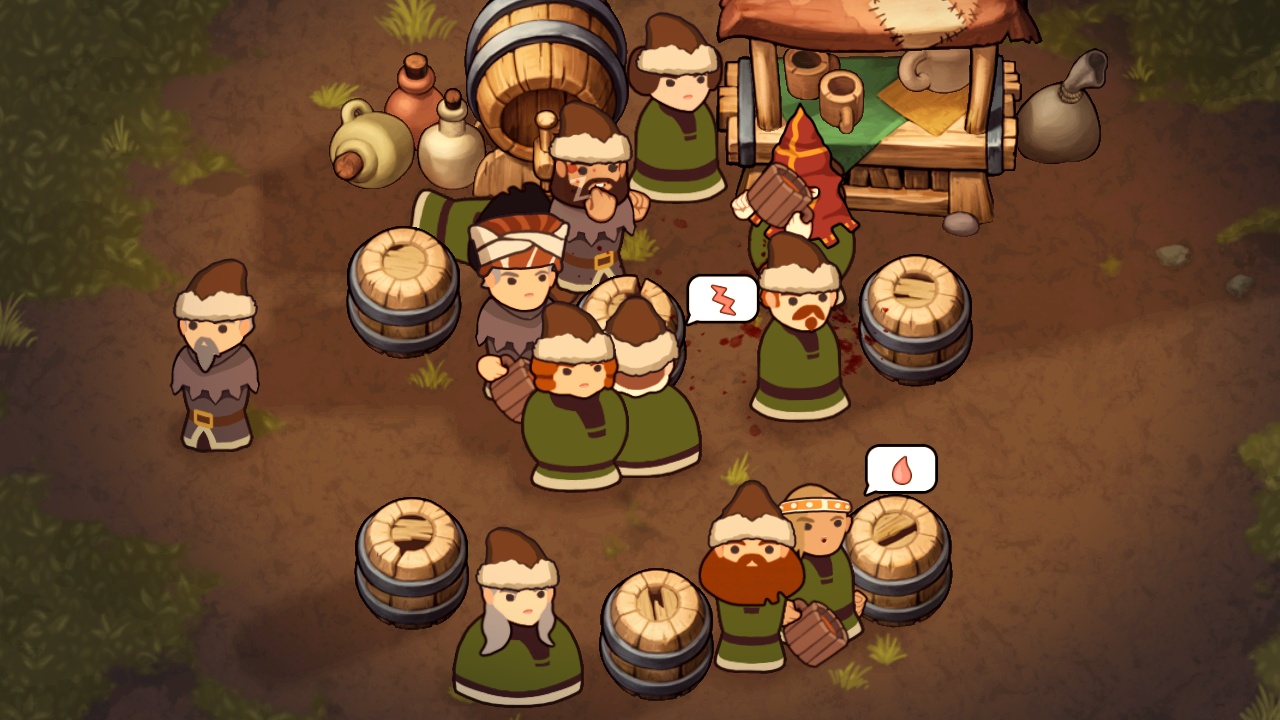
The key twist in Norland's management side is that outside of a few actions like construction, you don't issue orders directly to peasants. Instead, you assign tasks to your lords, who will then either carry them out directly or delegate to peasants. No building can operate without regular instructions from a lord, for example, so they spend much of their time wandering between production buildings shaking their fists at the lower orders. Other lordly actions include trading, researching new structures and technologies from books, educating their children, visiting other kingdoms on diplomatic missions and of course, commanding armies in battles.
The tiniest of events, like your King telling a mean joke to his sister-in-law, can spark personal vendettas and even wars
As you can imagine, a lord's calendar can get pretty packed, to the point where they'd struggle to fit everything in if they were perfectly efficient robots. But they aren't robots. They're very much people, with needs and desires of their own.
These are not idly chosen words. Needs and desires are both important, individual in-game mechanics. We'll discuss desires later, but as for needs, Lords need to eat and sleep. They need to socialise with other characters, particularly those they have good relationships with. If they're religious, they need to pray regularly and confess their sins to priests. And as already discussed, they need to have sex on a regular basis.
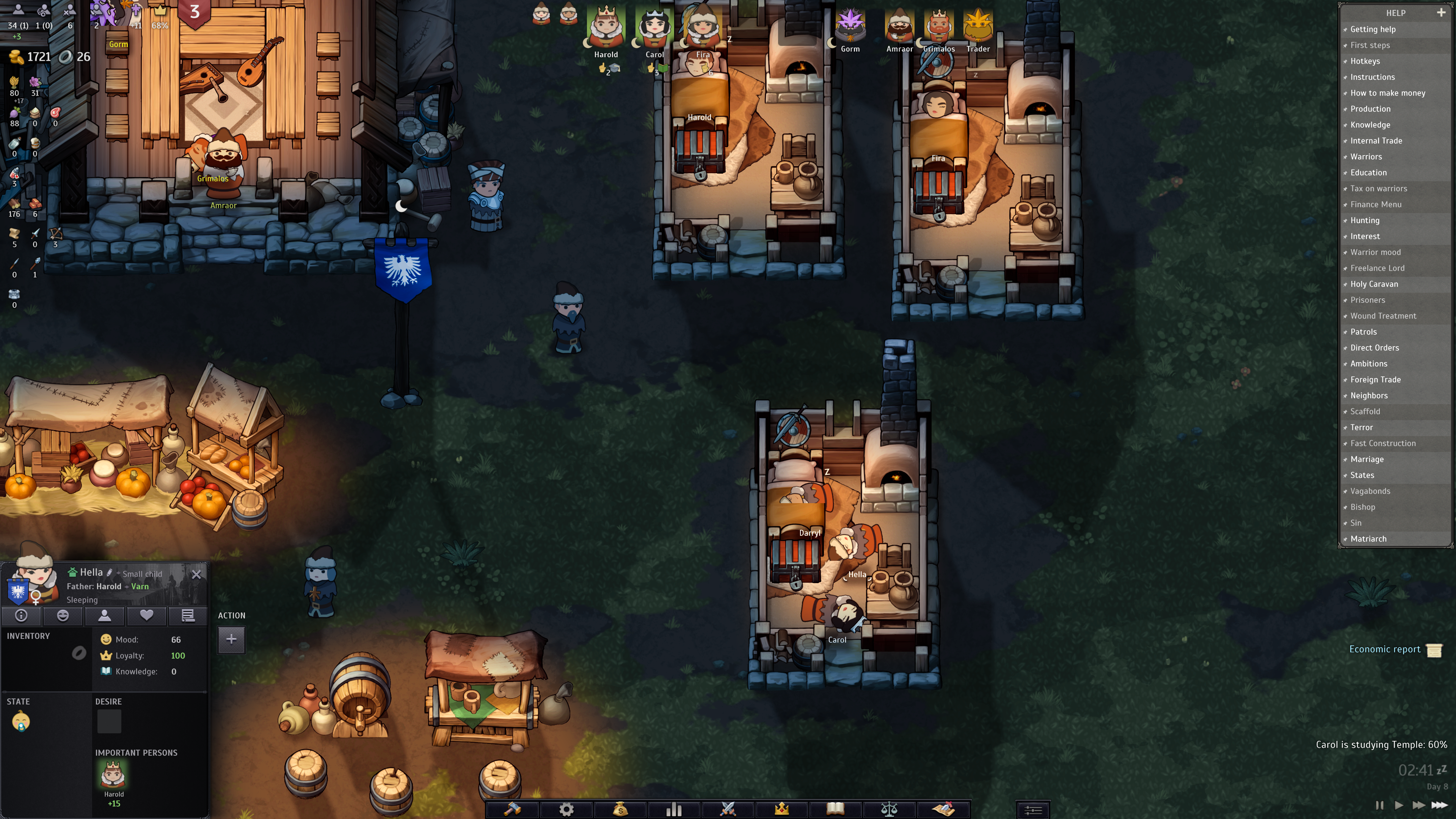
Fitting all these alongside a lord's schedule is tricky, but they all have to be tended to at some point. Going without a need for too long will impact a lord's mood, and if a lord is particularly unhappy, they'll refuse to perform their daily tasks. But unsatisfied needs can also lead them to make reckless decisions. And these decisions can spiral out in pretty wild ways. Remember I mentioned the perils of cheating? Well, in a different game of Norland, I played as the happily married King Barry and his wife Marie. Happily, that is, until Marie cheated on Barry with a peasant.
This sent Marie into a religious crisis, until her shame led her to reveal her affair to Barry. The King took the news… poorly, divorcing Marie and remarrying another Lord called Sasha, who I'd recruited as a 'free' lord before making an official member of the family. Sadly, divorce didn't stop the wound from festering, until both Larry and Sasha burned with the desire to murder Marie.
Again, the word 'desire' isn't idly chosen. Desires are essentially one off needs that appear procedurally based on certain parameters. They can range from wanting to eat meat to, well, wanting to murder your ex-wife. Lords will pursue desires relentlessly, going to extremes to make them happen if you don't satisfy them first.
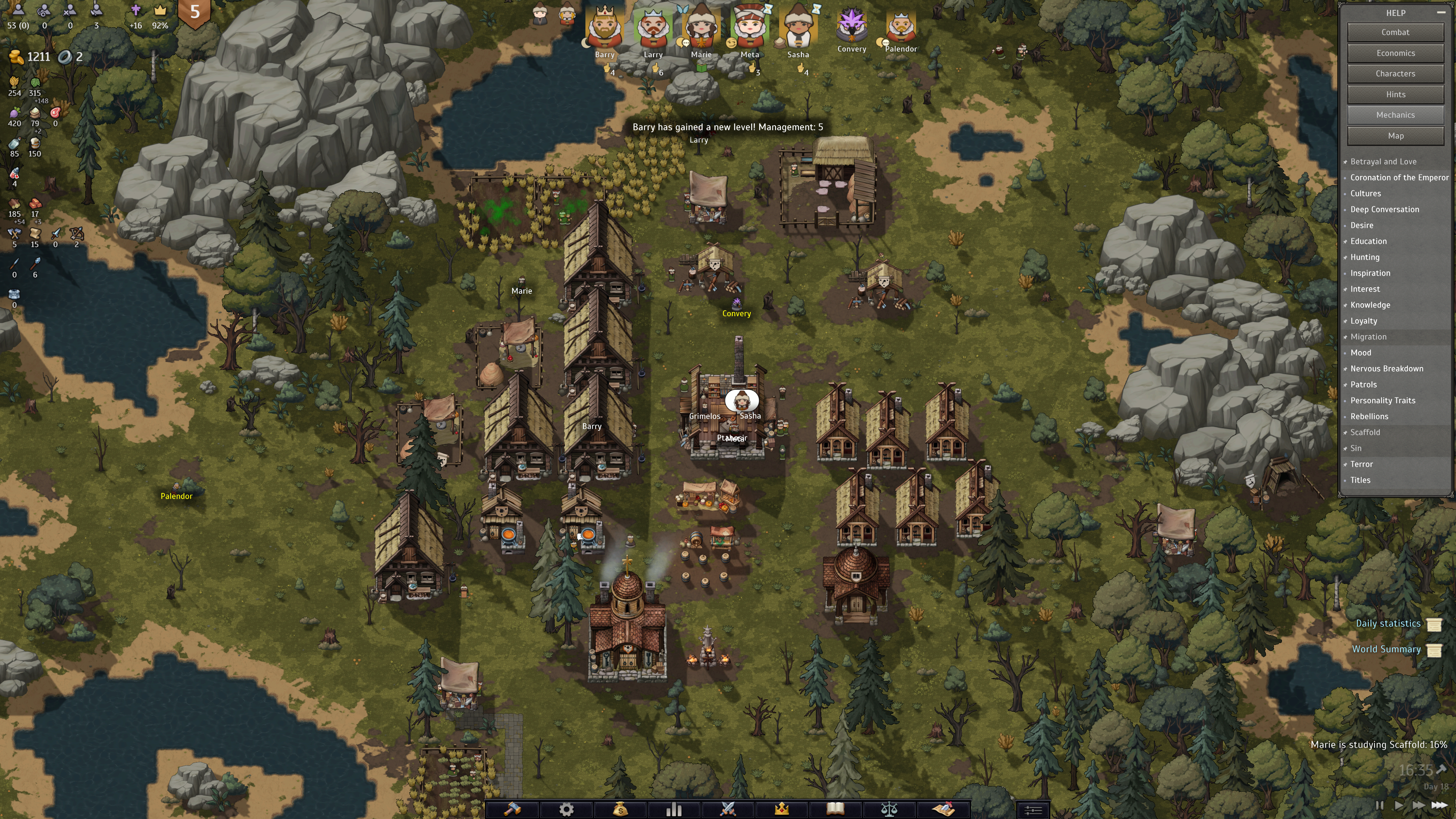
In this case, Marie's death would have been extremely bad for my Kingdom, because Marie was my chief researcher and knowledge dies with a lord unless it is shared in conversation with other lords. So to sate Barry and Sasha's bloodlust in a (slightly) less dangerous way, I had them both challenge Marie to individual duels. Lords can still be killed in duels, but it isn't guaranteed, and in this case, honour was served without any deaths. Granted, Marie was beaten up twice, had a nervous breakdown and spent three days in an alcoholic stupor (insert 'bon Appetit' meme here) but she emerged from all this misery alive and sanguine about the whole affair. At least, until she decided she wanted to murder Barry's sister-in-law, forcing me to set up another duel in which Marie got herself killed, taking half of my unlocked production buildings with her. But that's another story (that I am not at all bitter about).
To sate Barry and Sasha’s bloodlust, I had them both challenge Marie to individual duels
The cause and effect of Norland's systems is incredibly lucid, and it produces some wonderfully entertaining simulated drama. And this is just at the smaller scale. At the mid-level of management, you'll be doing things like dealing with bandit raids, religious schisms, and criminals stealing your goods or murdering your peasants. And all of this while trying to establish a thriving village and economy, managing the wages of your soldiers and peasants, judging how much surplus produce to sell on to the local trader, and deciding whether you want to save some money with a spot of prison labour.
Then there's the higher, geopolitical level of Norland. Outside of your village is an entire continent of rival nations that you can trade with, ally with, marry into, and of course conquer. These nations will in turn ally and fight with each other, at least until they are fallen upon by the rampaging tribal horde that emerges a few hours into the game, itself a whole other problem you'll need to solve at some point. Overall, this layer of Norland is a little broader strokes than the underlying colony simulation, but frankly that's a relief, as having to manage the geoscape at the same level of depth would make Norland incredibly finicky.
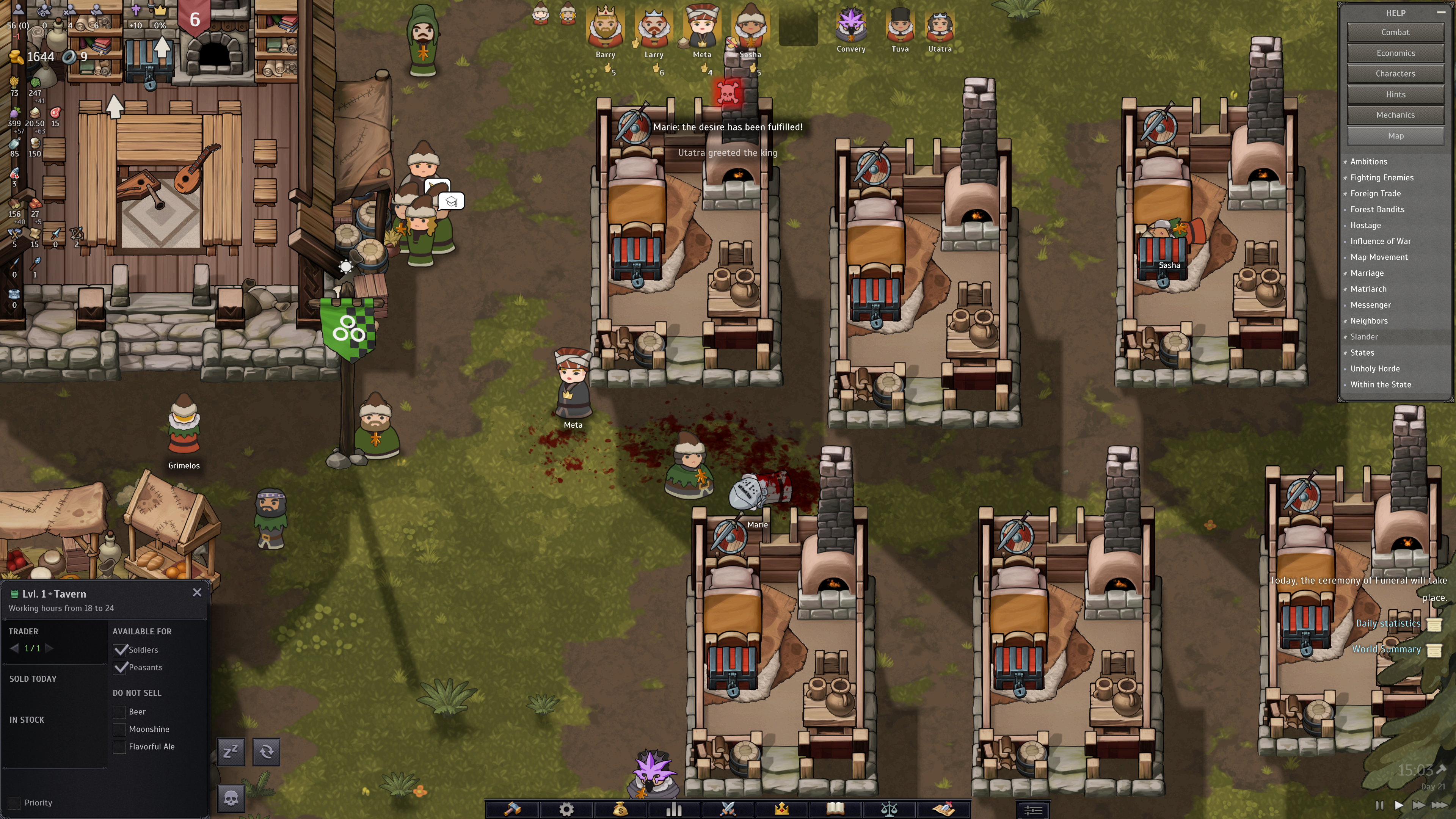
Indeed, simply climbing the vast, wobbling Jenga tower that is your Kingdom to compete at that international level is no small feat. There are dozens of plates for your lords to spin, and a bad day can result in one or several lords dropping all of theirs. For the most part, such disasters are fun rather than frustrating. But there are a couple of systems that seem overly primed toward gumming up the works.
Chief among these is rings. Your lords don't concern themselves with paltry gold. Instead, their currency is “Holy Rings” which they wear to display their status. Unlike all other resources, rings cannot be made or earned. They can only be purchased from the wandering trader who rocks up to your Kingdom once every few days.
This makes them a tightly controlled resource, one that all of your lords covet. At a general level, the more rings a lord has, the happier they are. But rings are also the source of the most common “desires”. Lords will constantly yearn to possess X number of rings, or want to avoid having the least rings in the family.
Generally speaking, I think the Holy Rings are a cool idea. Your lords' obsession over rings leads to some amusing scenarios. In one instance, King Barry's brother Larry got so fixated over them that he clonked Larry over the head and stole his rings from him, only for his wife (and Marie's killer) to do the same thing to him several days later. I also like how it plays into the game's themes, as your wealthy, comfortable lords tie themselves into knots over these useless trinkets, all while their subjects starve because the rutabaga farmers haven't received any instructions for a week.
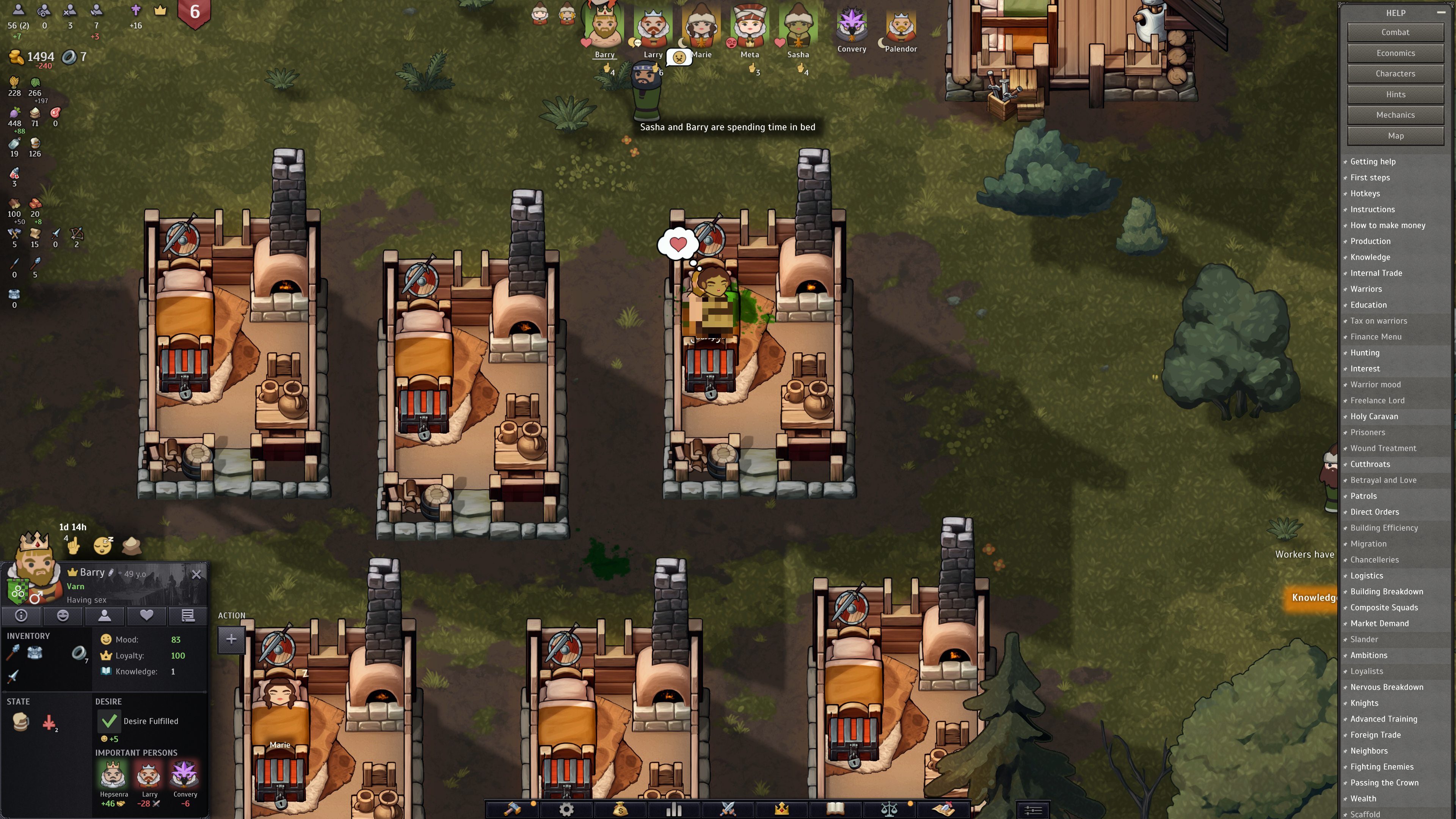
However, as Frodo discovered, ring management isn't much fun. Your lords constantly want rings, but they also constantly want to do things like have affairs with peasants and absolve their sins (such as having affairs with peasants). As such, lords often end up in deteriorating cycles of ring-related sadness that you often can't address because they're such a limited item. You can transfer rings between lords, but only five at a time, once per day. Not only is this insufficient in general, it doesn't help at all when three of your lords simultaneously desire to not have the least number of rings.
Comfortable lords tie themselves into knots over these useless trinkets, all while their subjects starve
Whereas every other problem in Norland feels like it can be addressed with careful management, rings can arbitrarily screw you over in ways you cannot resolve. It's a problem that requires a nudge rather than an overhaul to fix, but right now, you spend too much time with this one small part of the game to the detriment of the wider experience.
There are a few other nits I could pick, like research being a little too slow, and the lack of clarity over how you equip (and unequip) warriors with specific weapons and armour. But on the whole, Norland is a strong Early Access release. It already feels like a complete experience, and watching CK-style dramas play out in real time is pretty darned compelling. If you're still unconvinced, I'll leave you with one last tale of ribaldry. Characters who get pregnant in-game will start to suffer from morning sickness, and one day King Barry's new wife Sasha blew chunks all over her bed. Moments later, Barry walked in, stripped off, and lay down beside Sasha in the big green pool of sick.
“Oh God no,” I sighed. “They're having sex.”


